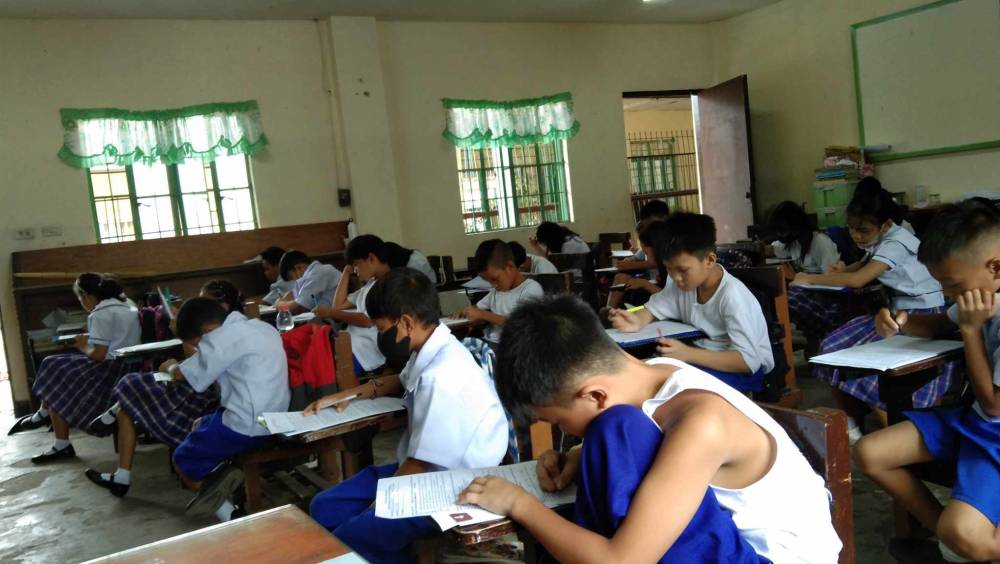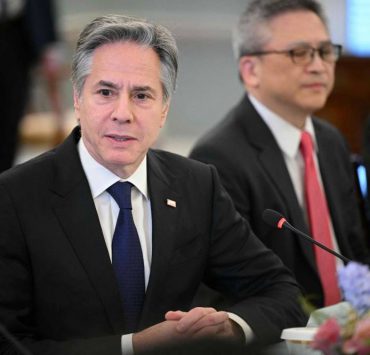C. Luzon teachers want remote work during extreme heat

CITY OF SAN FERNANDO—An accredited union of some 104,000 public school teachers in the Central Luzon region on Friday urged principals to stop requiring teaching and nonteaching personnel to report for work in schools when onsite classes are suspended due to dangerous heat index forecasts.
“We hope they consider the welfare of their teachers in the same manner they value the safety of learners,” said Vilma Liyao, secretary general of the Action and Solidarity for Teachers Empowerment Union-Central Luzon (Assert Union-CL).
The Civil Service Commission has accredited Assert Union-CL, making it the sole and exclusive negotiating agent for teachers.
Liyao said the Department of Education’s (DepEd) Department Order No. 37 “promotes the safety and protection of learners and personnel from unnecessary physical dangers that they may be exposed to during natural disasters and calamities.”
“This is to ensure that their constitutional rights to life, health, safety and property are always protected,” said the order that Vice President and Education Secretary Sara Duterte signed in 2022.
Central Luzon has been experiencing a heat index as high as 47 degrees Celsius in Aurora on April 24, according to the Philippine Atmospheric, Geophysical and Astronomical Services Administration (Pagasa).

‘Vulnerable’
According to Liyao, a number of teachers are “vulnerable” to heat-related ailments as they are nearing their senior years.
“Teachers should be at home too when facilitating online or modular classes,” she said.
Liyao said DepEd Memorandum No. 2024-04-02477, issued by Undersecretary Revsee Escobedo on April 1, also reiterated that teaching and nonteaching personnel should “not be required to report for work” except those who render security, safety, finance and other duties.
The union, she said, has relayed the request to superintendents of school divisions where a number of principals are known to violate department orders.
Assert Union-CL also asked school heads to be the ones to suspend classes because they know the conditions in their areas.
She said the same memorandum “reminded school heads of their authority and responsibility to suspend in-person classes and implement modular distance learning in cases of unfavorable weather environments, such as, but not limited to, extreme heat which poses health risks hindering learning and productivity.”
She said principals most often defer to elected officials when declaring the suspension of classes.
Mayors and governors have discretionary powers to cancel or suspend classes in difficult situations, explained Angelina Blanco, executive officer of the Provincial Disaster Risk Reduction and Management Office in Pampanga.
In Olongapo City, the local government suspended classes in both public and private schools on Thursday when the heat index peaked at a dangerous level of 45°C for two consecutive days.
Records from Pagasa showed that the heat index in the city would again reach 45°C on Saturday.
According to Pagasa, a heat index is categorized as dangerous when it reaches 42°C to 51°C.
Olongapo has been experiencing a dangerous heat index since last week.
“Allowing teachers to work from home ensures their well-being too,” said Liyao. “It is a crucial step in managing the current situation effectively.” —WITH A REPORT FROM JOANNA ROSE AGLIBOT

















